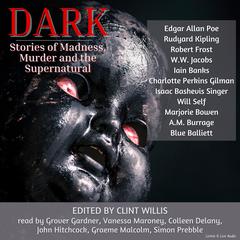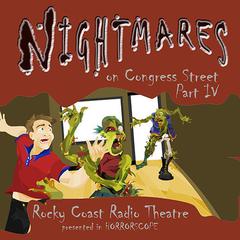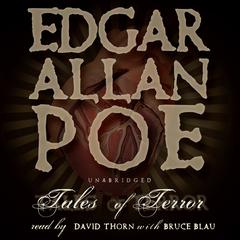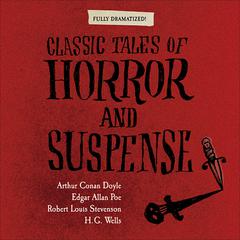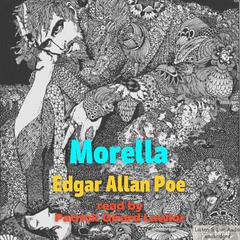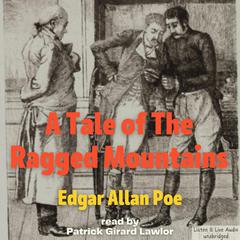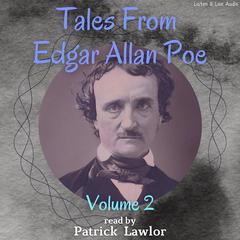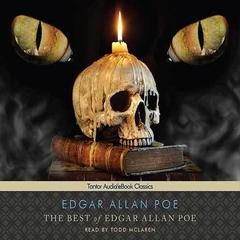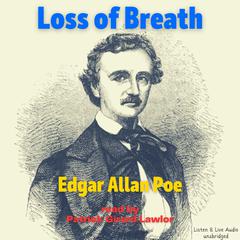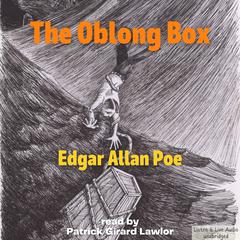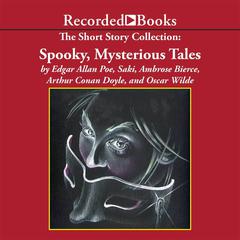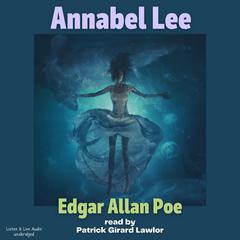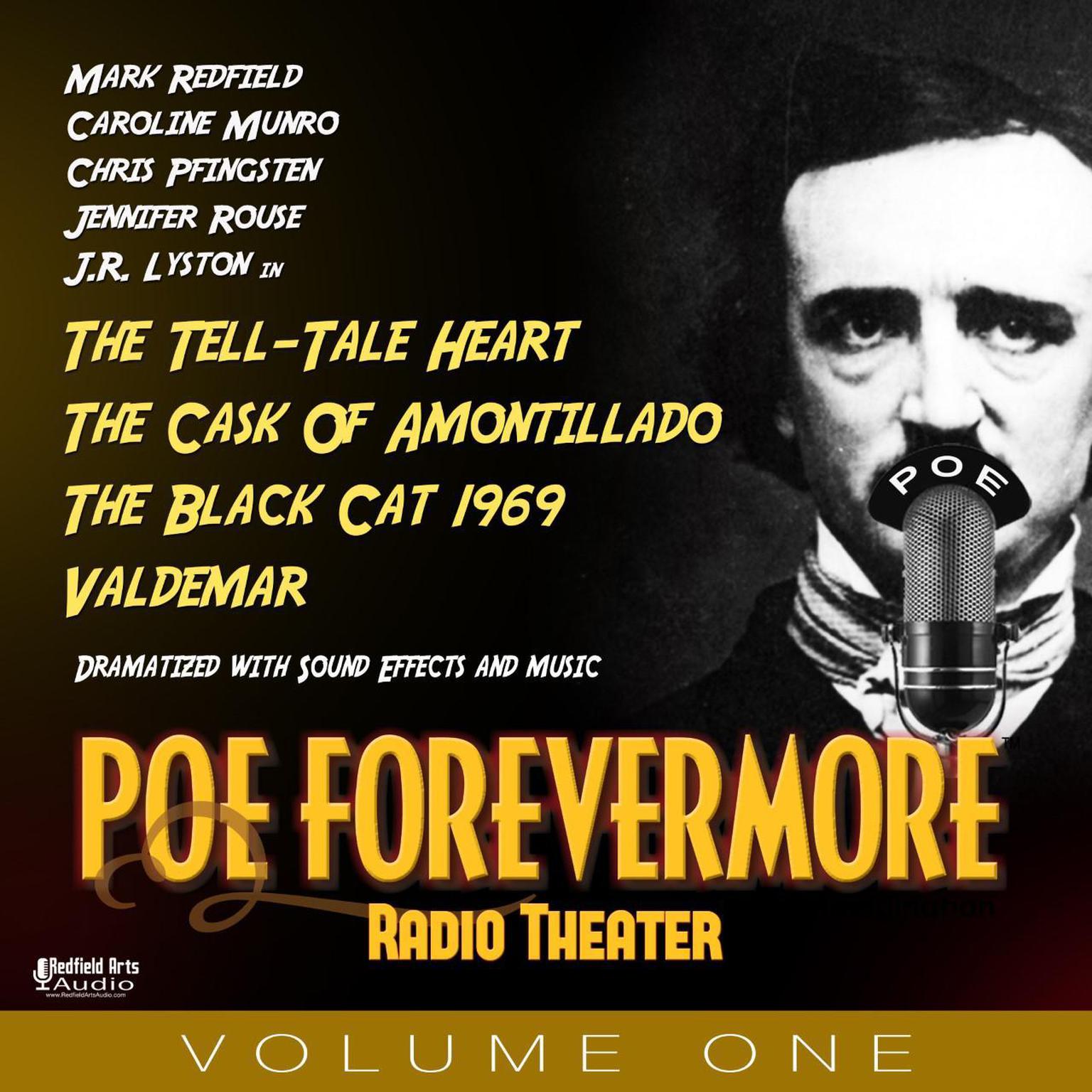 Play Audiobook Sample
Play Audiobook Sample
PoeForevermore Radio Theater Volume One: Four Poe Tales of Terror Dramatized! Audiobook
 Play Audiobook Sample
Play Audiobook Sample
Quick Stats About this Audiobook
Total Audiobook Chapters:
Longest Chapter Length:
Shortest Chapter Length:
Average Chapter Length:
Audiobooks by this Author:
Publisher Description
Four tales of terror from the pen of Edgar Allan Poe dramatized with sound effects and original music! In this PoeForevermore Radio Theater Volume One collection: Mark Redfield performs the nameless narrator in “The Tell-Tale Heart- A Monologue”. Redfield (Montessor) then walls-up Chris Pfingsten (Fortunato) in “The Cask of Amontillado”, a tale of cold revenge dramatized by Tony Tsendeas. Beautiful Caroline Munro is walled-up with a feline friend in our swinging-London version of “The Black Cat 1969”. And in “Valdemar” Jennifer Rouse (Mrs. Valdemar) tells of how J. R. Lyston (her husband, M. Valdemar) tried to cheat death! Adaptations and direction by Mark Redfield. “The Cask of Amontillado” adapted by Tony Tsendeas. Original Music and Sound Design by Jennifer Rouse.
Download and start listening now!
PoeForevermore Radio Theater Volume One Listener Reviews
Be the first to write a review about this audiobook!
About the Authors
Edgar Allan Poe (1809–1848) transformed the American literary landscape with his innovations in the short story genre and his haunting lyrical poetry, and he is credited with inventing American gothic horror and detective fiction. He was first published in 1827 and then began a career as a magazine writer and editor and a sharp literary critic. In 1845 the publication of his most famous poem, “The Raven,” brought him national fame.
Edgar Allan Poe (1809–1848) transformed the American literary landscape with his innovations in the short story genre and his haunting lyrical poetry, and he is credited with inventing American gothic horror and detective fiction. He was first published in 1827 and then began a career as a magazine writer and editor and a sharp literary critic. In 1845 the publication of his most famous poem, “The Raven,” brought him national fame.




